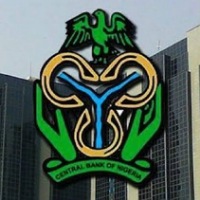Banking
Spanish Banks Still Battling Bad Loans

MADRID — Three of Spain’s biggest banks reported earnings Friday showing that despite their cleaner, leaner balance sheets and an improving domestic economy they are still paying dearly for the country’s real estate bust.
Banco Bilbao Vizcaya Argentaria SA, BBVA.MC +0.21% Caixabank SA CABK.MC +1.38% and Banco Popular SA POP.MC -2.07% have all dramatically improved their capital strength since the dark days of the euro zone’s financial crisis but reported rising bad loans and falling net interest income in the final quarter of 2013. Net interest income is the difference between what banks earn from lending and the amount they pay for deposits.
BBVA, Spain’s second-biggest bank, on Friday reported a fourth-quarter net loss triggered by a charge related to an earlier sale of shares in a Chinese bank.
Its net loss was €849 million ($1.15 billion) in the three months to Dec. 31, compared with a net profit of €20 million a year earlier. Analysts had forecast a fourth-quarter net loss of €765 million.
The bank set aside less than half the amount it did a year earlier to cover souring loans, making €1.2 billion in new loan-loss provisions in the fourth quarter compared with €2.7 billion a year earlier.
In October, BBVA cut its stake in China Citic Bank Corp. 601998.SH -2.96% to just below 10%, a move meant to bolster its capital ahead of balance sheet tests by European authorities. The bank said at the time the sale would trigger a €2.3 billion hit to its results.
The Citic sale generated an accounting loss but freed up capital, giving the bank a 9.8% capital ratio by the end of the year under new Basel III rules.
For the full year, the bank reported net profit of €2.2 billion, up 33% from 2012.
BBVA said net interest income fell 3.8% in the fourth quarter to €3.8 billion from €3.9 billion a year earlier, though it was above analyst forecasts of around €3.6 billion.
The results come after Spain’s largest bank, Banco Santander SA, SAN.MC -0.31% said Thursday that fourth-quarter net profit more than doubled as it set aside a smaller proportion of its earnings to cover loan losses, offsetting lower net interest income.
In Spain BBVA’s net profit nearly halved in 2013 while in Mexico—where the lender has its biggest division—it rose 6.8% year-over-year.
The Mexico results were better than expected, Nomura said Friday, while losses were greater than forecast in Spain. The U.S. lagged analyst expectations, Portuguese brokerage BPI said, “hampered by lower trading gains and higher costs.”
BBVA said 6.8% of its loans were more than 90 days overdue at the end of 2013, up by a third from 5.1% a year earlier.
In its domestic market bad loans jumped to 6.4% in 2013 from 4.1% the year before.
BBVA Chief Operating Officer Angel Cano said Friday that the bad loan ratio was beginning to stabilize. “The worst has passed,” Mr. Cano said of the outlook for Spain. He said BBVA was open to selling its real estate servicing unit as long as a sale would bring capital gains.
Other Spanish banks, such as Santander, have sold property management units amid an uptick in interest from foreign investors in Spain’s distressed real estate stock.
Caixabank, Spain’s third-largest bank by market value, said Friday that in the fourth quarter its rate of bad loans as a portion of total lending jumped to 11.66% from 8.63% a year earlier and were up slightly quarter on quarter.
Caixabank, said fourth-quarter net profit fell 21% from a year earlier to €45 million. Over the full year net profit more than doubled to €503 million.
Its fourth-quarter net interest margin fell 0.8% to €1.02 billion from €1.03 billion the previous year.
Overall, bad loans held by Spanish banks have continued to climb since February 2013, representing an all-time high 13.1% of total lending in November.
Loan performance typically lags economic trends. Borrowers still struggle to repay their mortgages and corporate loans amid high unemployment and weak demand from consumers within Spain.
Banco Popular said it swung to a net profit in the fourth-quarter of 2013 from a steep loss the previous year after cleaning up its real-estate assets.
Net profit was €98 million in the fourth quarter, swinging back from a major loss in the year-earlier period when it was €2.7 billion in the red.
Still, Banco Popular also posted a big increase in sour loans—to 14.27% in the fourth quarter of 2013 from 8.98% a year earlier. Its fourth-quarter net interest margin fell 3.9% to €590.9 million from €615 million the previous year.
– WALLSTREET JOURNAL
Banking
Millions of customers still stranded worldwide 24 hours after GT Bank online operations suffered attacks
By Yemie ADEOYE
GT Bank, one of Nigeria’s leading banks, with operations across Africa and the United kingdom, and with an asset base of about US$3.11 trillion is under a cyber attack which has left millions of its customers across the world stranded in the last 24 hours.
The bank which was renowned for its seamless online operations at inception has suffered dwindling online efficiency in recent years and this current attack didn’t come as a surprise to many of its numerous customers. However, it is becoming worrisome that over 24 hours after its online operations went down, the bank has not been able to arrest the situation and restore its online services.
Several customers of the bank took to their X (formerly known as twitter) handles to express their frustrations at the bank, as several of the customers in the diaspora are unable to access their accounts and carry on with their transactions. A customer , Jeff55 who lamented on his X handle about the development, stated that it is a thing of shock that a bank of this size couldn’t afford to have the necessary tools and experts to ensure a full protection of its online operations in this age and time.
Another customer Dimma stated that while Cybersecurity training may seem tedious, the recent #GTBank hack is a stark reminder that everyone is just a click away from a devastating attack.
Several media organisations had reported that hackers have stolen GT Bank website, and intercepted customers Data in massive phishing operation.
At the time of filing this report, Biztellers.com.ng checks on the banks website shows that it is still down and unaccessible, and neither GT Bank media and communications unit nor any of its agencies or surrogates have commented officially on the development.
Banking
Tinubu commends increased crude production to 1.61 mbpd
Says output surge buoyed by reforms he announced in May 2024 to address gaps in PIA
President Bola Ahmed Tinubu on Sunday declared a resurgence in the oil & gas industry, commending the increased crude production to 1.6 million barrels per day.
The president, who said this in a national broadcast, maintained that the resurgence was buoyed by the reforms he announced in May 2024 to address the gaps in the Petroleum Industry Act (PIA).
Nigeria’s crude oil output got a boost to 1.61 million barrels per day in July 2024 through the president’s directive and the industry leadership provided by the Nigerian National Petroleum Company Limited (NNPCL).
Acknowledging what he called a resurgence of the once-declining oil and gas industry in his Sunday-morning broadcast to the nation, President Tinubu said that oil investors are coming back to Nigeria.
He said; “Our once-declining oil and gas industry is experiencing a resurgence on the back of the reforms I announced in May 2024 to address the gaps in the Petroleum Industry Act. Last month, we increased our oil production to 1.61 million barrels per day, and our gas assets are receiving the attention they deserve. Investors are coming back, and we have already seen two Foreign Direct Investments signed of over half a billion dollars since then.
Read Also : BREAKING: Sell Crude To Dangote Refinery In Naira – Tinubu To NNPC Ltd
“Fellow Nigerians, we are a country blessed with both oil and gas resources, but we met a country that had been dependent solely on oil-based petrol, neglecting its gas resources to power the economy.
We were also using our hard-earned foreign exchange to pay for and subsidise its use. To address this, we immediately launched our Compressed Natural Gas Initiative (CNG) to power our transportation economy and bring costs down.
This will save over two trillion Naira a month, being used to import PMS and AGO and free up our resources for more investment in healthcare and education.
“To this end, we will be distributing a million kits of extremely low or no cost to commercial vehicles that transport people and goods and who currently consume 80% of the imported PMS and AGO.
“We have started the distribution of conversion kits and the setting up of conversion centres across the country in conjunction with the private sector. We believe that this CNG initiative will reduce transportation costs by approximately 60 per cent and help to curb inflation.”
Banking
FBN Holdings On Course For AGM

Plans are in top gear for the 11th Annual General Meeting (AGM) of the FBN Holdings Plc.
The management made this disclosure in a notice it filed with the Nigerian Exchange Limited (NGX) on Thursday, where it averred that it has not been served with any court order against the proposed AGM.
According to notice, which was signed by the acting Company Secretary, Adewale Arogundade, FBN Holding said, “The attention of FBN Holdings Plc (the Company) has been drawn to recent media reports purporting that the Company has received a Court Order stopping it from holding the Annual General Meeting (AGM) scheduled for August 15, 2023.
“We confirm that this assertion is a false narrative as the Company has, as at the date hereof, not been served with any court order to stop the forthcoming AGM.
“Suffice to mention that the AGM is a statutory meeting of Shareholders that must be held in accordance with the law, further to which the Company will notify the regulators and the public as appropriate if there is any lawful order to restrain the Company from conducting same.
“We hereby assure our esteemed Shareholders that the AGM shall hold on August 15, 2023, as planned and we look forward to their attendance and active participation at the meeting.”
However, court orders published in national dailies showed that the Federal High Court in Lagos had issued an order against the financial institution, barring it from holding its 11th AGM.
The order was entered pursuant to a petition by Olusegun Onagoruwa, in suit No: FHC/L/CP/1271/2022. It was addressed to the bank and some other bank officials.
It read, “Take notice that unless you obey the directives in the judicial order contained in the order made on July 15, 2022, by the Federal High Court, Lagos, by refraining from proceeding with the 11th Annual General Meeting of FBN Holdings Limited proposed for August 15, 2023, from seeking approval to issue or raise share capital in any manner whatsoever, from appointing or confirming the appointment of new directors, or in any other manner taking any step towards implementing, actualising enforcing resolution of the 10th Annual General Meeting of FBN Holdings Plc held on June 20, 2022, or in any other manner overreaching, disobeying or undermining the said order of a court, you will be guilty of contempt of court and you will be liable to be committed to prison and to there imprisoned.”
Biztellers brought you a report that a segment of shareholders had staged a protest at the headquarters of the bank on Monday, calling for the AGM to be held, as well as soliciting regulatory interventions.
It is expected that at the AGM, FHN Holdings is poised to breathe life into plans to seek shareholders’ approval to raise N150bn fresh capital via a rights issue and elect new directors including billionaire, Femi Otedola and Samson Ariyibi among other resolutions.












